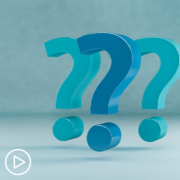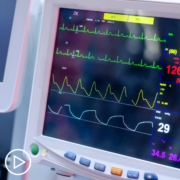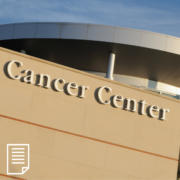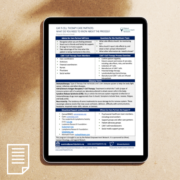Is CAR T-Cell Therapy Right for You? Questions to Ask Your Myeloma Care Team
Is CAR T-Cell Therapy Right for You? Questions to Ask Your Myeloma Care Team from Patient Empowerment Network on Vimeo.
How can myeloma patients decide if CAR T-cell therapy is right for them? Myeloma expert and researcher Dr. Beth Faiman discusses the role of shared decision-making in patient care and questions to ask the care team when considering CAR T-cell therapy.
Dr. Beth Faiman is an Adult Nurse Practitioner in the department of Hematologic Oncology and Blood Disorders at the Cleveland Clinic. Learn more about Dr. Faiman.
See More From Thrive CAR T-Cell Therapy
Related Resources:

|

What Do You Need to Know When Considering CAR T-Cell Therapy? |

|
Transcript:
Katherine Banwell:
So, Dr. Faiman, when a patient is talking with their care team about CAR T-cell therapy, what questions should they be asking to help determine if CAR-T is even right for them?
Dr. Beth Faiman:
Katherine, that’s an excellent question. So, let’s just say that somebody from Patient Empowerment Network heard about CAR T-cell therapy for myeloma and then sought out a local institution that might be conducting that procedure.
So then, they come for that visit and what you mentioned was just spot on, getting a list of questions together. What we do at my institution, as well as many throughout the country, is a process called shared decision-making.
You might’ve talked about this on prior webinars, but shared decision-making occurs when that healthcare team, such as the physician, nurse practitioner, pharmacist, whoever, shares information with the patient and their care partner.
You mutually share information to arrive at a decision. So, many studies have been done on shared decision-making. It’s done in many different areas. And so, through that sharing of information, you might think of different questions.
Some of the things that I try to proactively offer – we all have our list of things that we educate our patients on, but some of the things I proactively will recommend to patients and their care partners when you’re seeking an opinion at these centers is, “How long will I be sick? What are the biggest side effects of the medication I have to worry about?” Asking your care team – I know it sounds silly, but are they aware of all your prior health concerns, especially if you’re coming for an evaluation.
Maybe you have peripheral neuropathy where you have numbness and tingling in your fingers or toes or a history of kidney disease. Your kidneys look fine now but maybe a few years ago at the myeloma diagnosis the kidneys had a temporary failing and now they’re better so they’d want to protect you with future medications. How long will you have to take medications after the CAR-T procedure? There’s antiviral medicines, antibacterial medications, and medications called IVIG, which strengthens your immune system.
And then, finally, asking about the infection protection afterwards. Do you have to get vaccinated again against pneumococcal, shingles, and all of those other things that we do. The cellular therapy guidelines suggest timepoint for one, three, five, etc., months after CAR T-cell procedure to get revaccinated. So, who’s going to do that for you?
How are you going to know what to get? So, make sure that they give you a timeline, calendars, and set expectations for what you need to do as a patient and then you’ll help them set expectations for what they need to do to provide you the accurate education.










